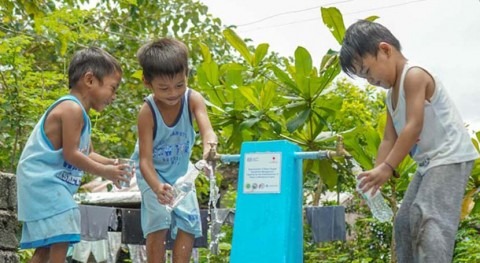The ILO’s Director-General, Guy Ryder, and the Executive Secretary of the United Nations Convention to Combat Desertification (UNCCD), Ibrahim Thiaw, have signed a memorandum of understanding (MoU) in New York that strengthens collaboration between the two UN agencies with the goal of promoting sustainable development.
Welcoming the partnership, Ryder said, “Together ILO and UNCCD can step up efforts to accelerate progress towards prosperous and sustainable rural economies that offer quality job prospects and greater protection for their youth and help to fight land degradation.”
ILO estimates that 68% of workers in low-income countries work in agriculture, and for them land and water are often critical lifelines to human security and prosperity.
Environmental challenges, such as desertification, land degradation and drought affect sustainable development and have major implications for creating decent work. If not addressed they can exacerbate conflicts, displacement and migration and undermine prospects for the realization of the Sustainable Development Goals (SDGs).
ILO estimates that 68 per cent of workers in low-income countries work in agriculture, and for them land and water are often critical lifelines to human security and prosperity.
“Environmental challenges, poverty and human mobility are interconnected phenomena. By tackling land degradation and scarcity, rural youth unemployment and insecurity of tenure in a joined-up way, we aim to present a positive narrative and deliver on the SDGs. It’s important that UNCCD and the ILO work more closely and merge expertise on decent green jobs and land stewardship and governance to take action and support countries on areas linking sustainable land management and labour mobility,” Thiaw said.
Each year, at least eleven million young Africans enter the job market. In the next decade an estimated 60 million people will be at risk of being forced to move from degraded land, migrating within and outside the continent.
“73 per cent of all migrants are migrant workers of working age. It will be important to examine the interplay between environmental challenges, migration and employment, and support more integrated and coherent policy approaches,” Ryder said.
ILO supports approaches that advance decent work, environmental sustainability and resilience, and address the growing challenges of labour mobility through policies and projects around the world.
Collaboration between ILO and UNCCD will aim at advancing sustainability, contributing to halting desertification and supporting green jobs and decent work opportunities. Particular attention will be paid to addressing the linkages between desertification and migration trends. The collaboration will focus around three areas of work:
- Knowledge development on the linkages between desertification, employment and migration.
- Increasing awareness and mobilizing political support for an integrated approach to these issues.
- Technical assistance to countries with delivering workable solutions.







